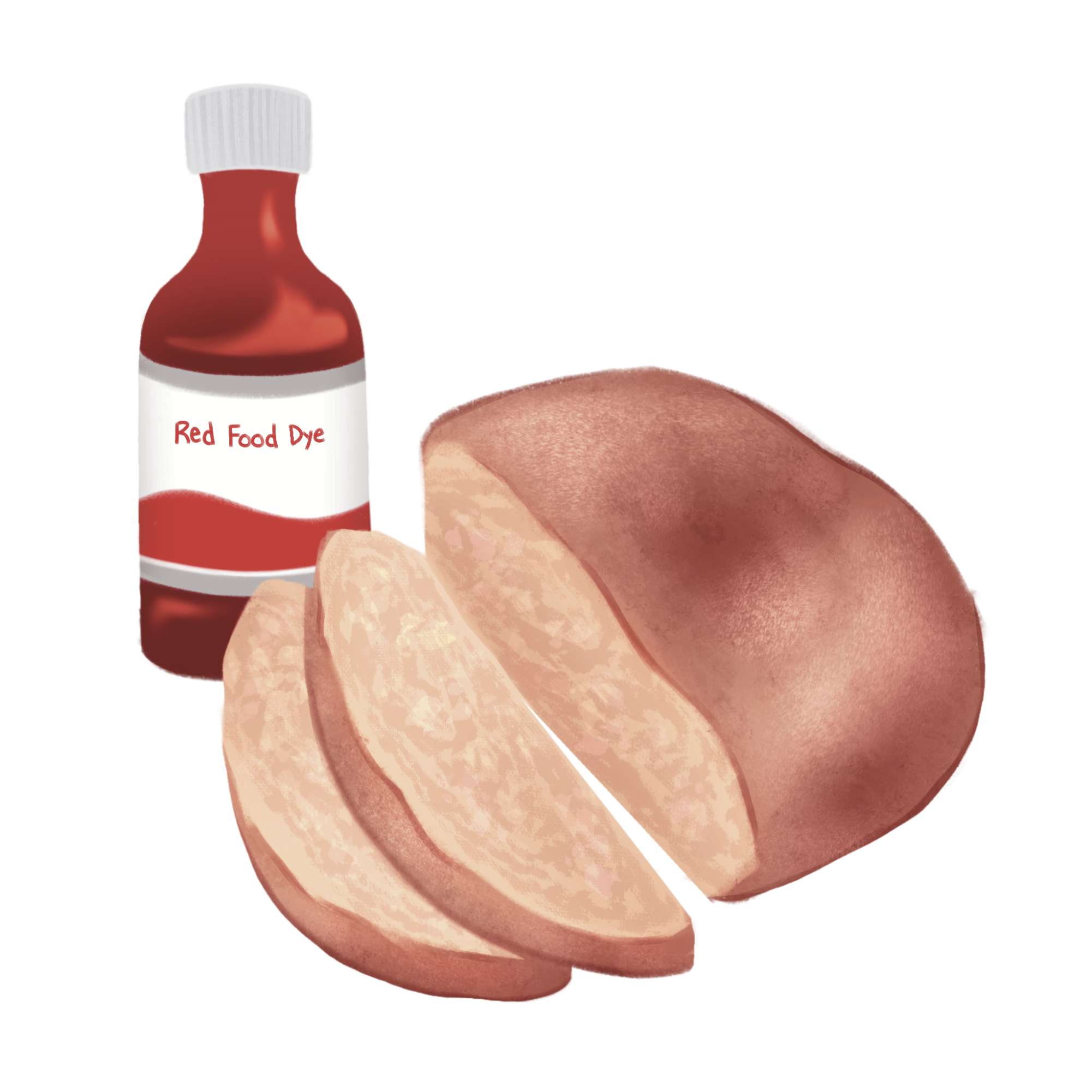California outlawed the potentially harmful food additives potassium bromate, Red Dye no. 3, propylparaben and brominated vegetable oil when Gov. Gavin Newsom signed Assembly Bill 418 in Septemeber. The law doesn’t go into effect until Jan. 1, 2027, giving companies time to phase out those ingredients.
These additives are commonly found in foods. Red Dye no. 3, the bill’s sponsors say has been found to harm brain development, is found in over 3000 U.S. products, notably soda, yogurt, cookies and baby food.
The International Agency for Research on Cancer found potassium bromate, used to make bread rise faster, is a carcinogen, which can cause cancer.
According to the European Union, propylparaben, which extends the shelf life of baked goods, can cause reproductive harm. And according to the National Institutes of Health, brominated vegetable oil, which enhances flavoring in sodas, can impair memory.
The bill’s sponsors also say the risks associated with these additives have been well known for several decades.
Brominated vegetable oil and potassium bromate are already banned in several countries, and, in the United States, Red Dye no. 3 is banned in cosmetics and applied drugs. The Food and Drug Administration has regularly ruled the amount of additives used in each chemical was not enough to be harmful for human consumption.
However, those evaluations were from several decades ago. Recent petitioning has led the FDA to begin reevaluating these additives in food.
Sophomore Caden Le said he was unsurprised at how long the FDA took to enact the ban.
“Companies try to make as much money as possible,” Le said. “It’s really common for companies to use the cheapest ingredients to get what they want in their products.”
Sophomore Noelle Yoo said banning these ingredients has the potential to significantly impact her life since her allergies prevent her from eating many foods.
“Some of the only things I eat are cheese and bread,” Yoo said. “Removing some of these things will have an impact on my life. The only alternative I can think of due to my restrictions would be baking bread myself, which can be very time consuming.”
In a letter to the California assembly about his support of the Bill, Newsom cited the absence of Red Dye No. 3. in the European Union as evidence the companies could shift in time.
“[Skittles come] from the EU– a place that already bans a number of chemical additives and colorants,” Newsom said in the letter. “This is demonstrable proof that the food industry is capable of maintaining product lines while complying with different public health laws, country-to-country.”
California’s Proposition 65, passed in 1986, further forbade the selling of products containing low amounts of harmful chemicals.
Junior Graeme Kieran said Proposition 65 provides some safeguards against the potential harms of these additives.
“The amount (of chemicals) that they require for a Prop 65 warning is much lower than the amount that will actually pose a risk for cancer,” Kieran said. “I think there’s a bit of fear-mongering going on.”
However, Kieran said he was glad the ban was enacted.
He said, “If these new chemicals are actually present in the foods that they’re trying to ban them from in amounts that are likely to cause cancer, then yeah, they should be [banned].”
CA Assembly Bill 418 to ban harmful food additives by 2027
July 2, 2024

Story continues below advertisement
Tags:
Donate to The Campanile
$250
$1000
Contributed
Our Goal
Your donation will support the student journalists of Palo Alto High School's newspaper

